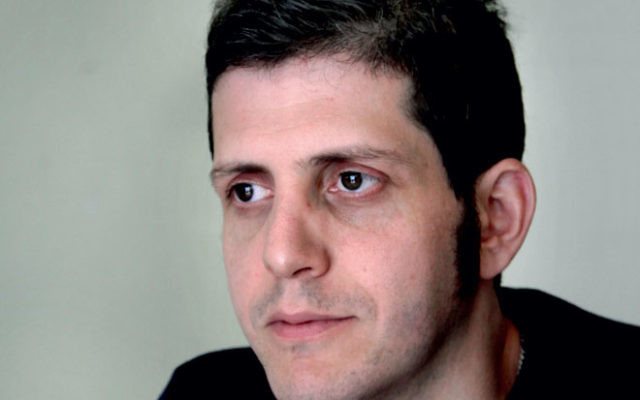Power of the written word
Israeli author Nir Baram was born into a political family, but turned his back on politics for a literary career. He was in Australia recently to promote the local release of his novel, Good People.
ISRAELI publishing house Am Oved had a gloomy prediction for one of its top authors, Nir Baram. “Nobody will want to read it,” Baram was warned before the release of his first non-fiction book, In a Land Beyond the Mountains.
“The launch was in February and three weeks later, my book was Israel’s number one bestseller,” the 39-year-old author says without a trace of smugness. “People want to read about my journey.”
Baram has been in Australia during May to promote his book Good People and appear at the Sydney Writers Festival and the Melbourne Jewish Writers Festival.
In a Land Beyond the Mountains was bound to create intense interest. In the summer of 2014, shortly before the war in Gaza, Baram began his journey through the territories beyond the 1949 Green Line and for an entire year, immersed himself in the day-to-day realities of life for Palestinians and Jewish settlers in the West Bank and East Jerusalem.
With the Jerusalem-born author getting extensive exposure at the Sydney and Melbourne festivals – each has booked him for three sessions – his new book is sure to come up for discussion, although the focus will be on his critically acclaimed 2010 novel, Good People, which is set in Germany and Russia during World War II.
Baram, who is making his first visit to Australia, writes in Hebrew and so far, In a Land Beyond the Mountains has been translated only into German. By contrast, Good People has just been released in English for the first time, thanks to Melbourne’s Text Publishing.
“It has been published in 13 other languages, and a lot of time and effort went into the English translation,” says Baram. “Basically, Good People explores a question few have raised, even though so much has been written about World War II.
“It’s easy for readers to identify someone like Eichmann as evil, but what about the many talented young people – full of ambition, but not ideologically driven or more opportunistic than the average person – who worked for the bureaucracies of Nazi Germany and Stalin’s Russia?”
Baram’s protagonists, Berlin adman Thomas Heiselberg and Russian Jewish intellectual Sasha Weissberg, typify those young people. Why they decide to serve genocidal regimes – he, by providing his market research skills to the Nazi propaganda machine; she, by becoming a literary editor of confessions for Stalin’s secret police – and how they deal with terrible truths when fate brings them together, make for a chilling, yet deeply affecting novel about collaborators.
Baram has been shortlisted for the Sapir Prize (Israel’s Man Booker) and the Rome Prize for foreign literature, and won the 2010 Prime Minister’s Award for Hebrew Literature.
The son and grandson of ministers in Israeli Labor Party governments, Baram grew up on a solid diet of left-wing politics and wrote his first book when he was 20. It was an antidote to grief; the previous year, his mother had died of cancer.
“I promised her I would never be a politician,” Baram recently revealed. “I still don’t see any reason to break this promise. As a writer, I can influence society on my own ground.”
His bestselling 2013 novel, World Shadow, which received rave reviews from countries ranging from the Netherlands to Mexico, is about a group of disillusioned young Londoners who decide to execute a global strike of a billion people, which proved to be a potent outlet for his well-publicised view that the capitalism unleashed by Margaret Thatcher and Ronald Reagan has proved massively destructive, especially to the young.
Now with In a Land Beyond the Mountains, Baram, who has worked as a journalist for the Israeli newspaper Haaretz, has used his investigative skills to reveal the human face of the bitterly divisive Israeli-Palestinian conflict.
“Sometimes I’m optimistic that a solution will be found, but to be honest, I’ve become more and more pessimistic,” says Baram. He also agonises over the divisions within Israel, although the vibrant, cosmopolitan city in which he lives with his partner Tamar and their infant son, gives him hope.
“Tel Aviv is the biggest achievement of Zionism,” says Baram. “It’s a fantastically diverse, interesting city full of young people and genuine multiculturalism – just look at Jaffa – and to me, it offers a real vision for the future.”
Good People is published by Text Publishing, $32.99 (rrp).
REPORT by Zelda Cawthorne


comments